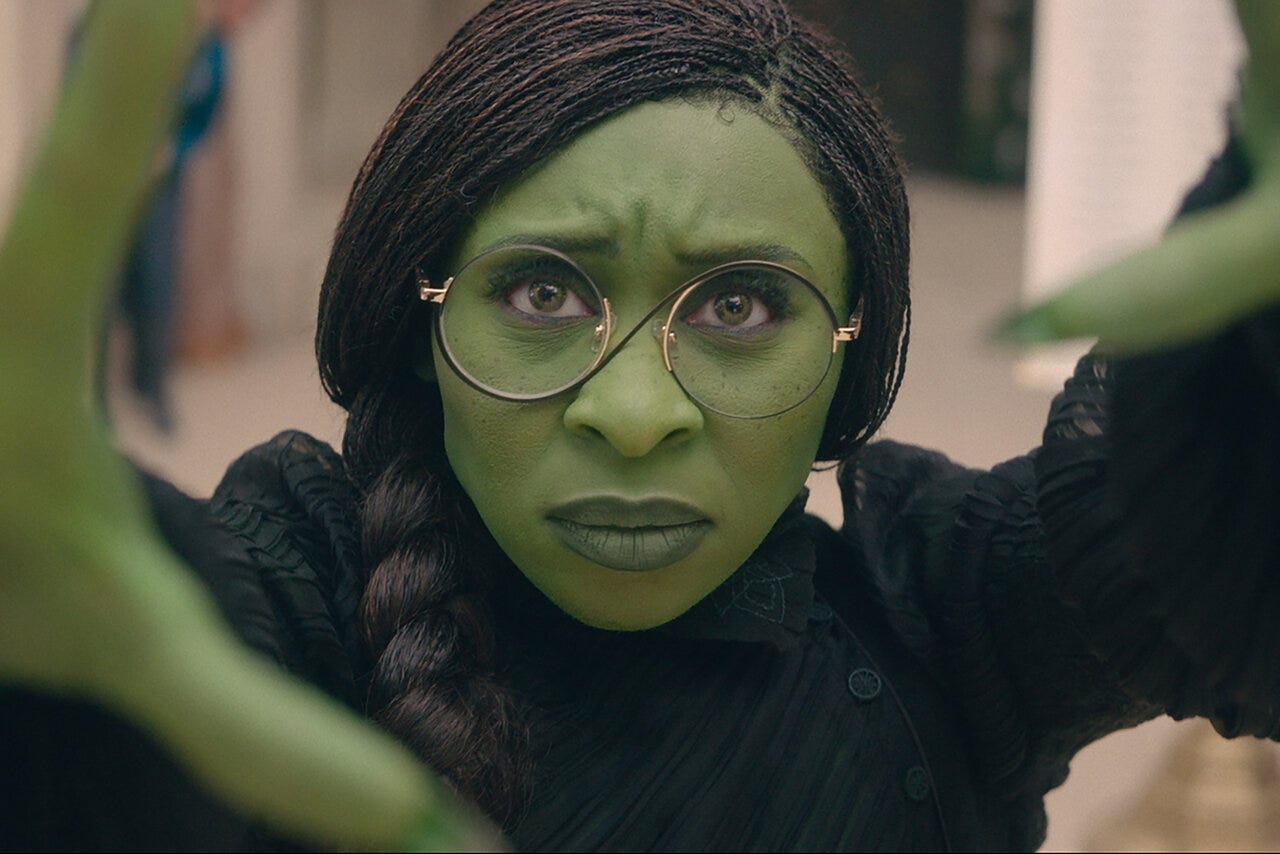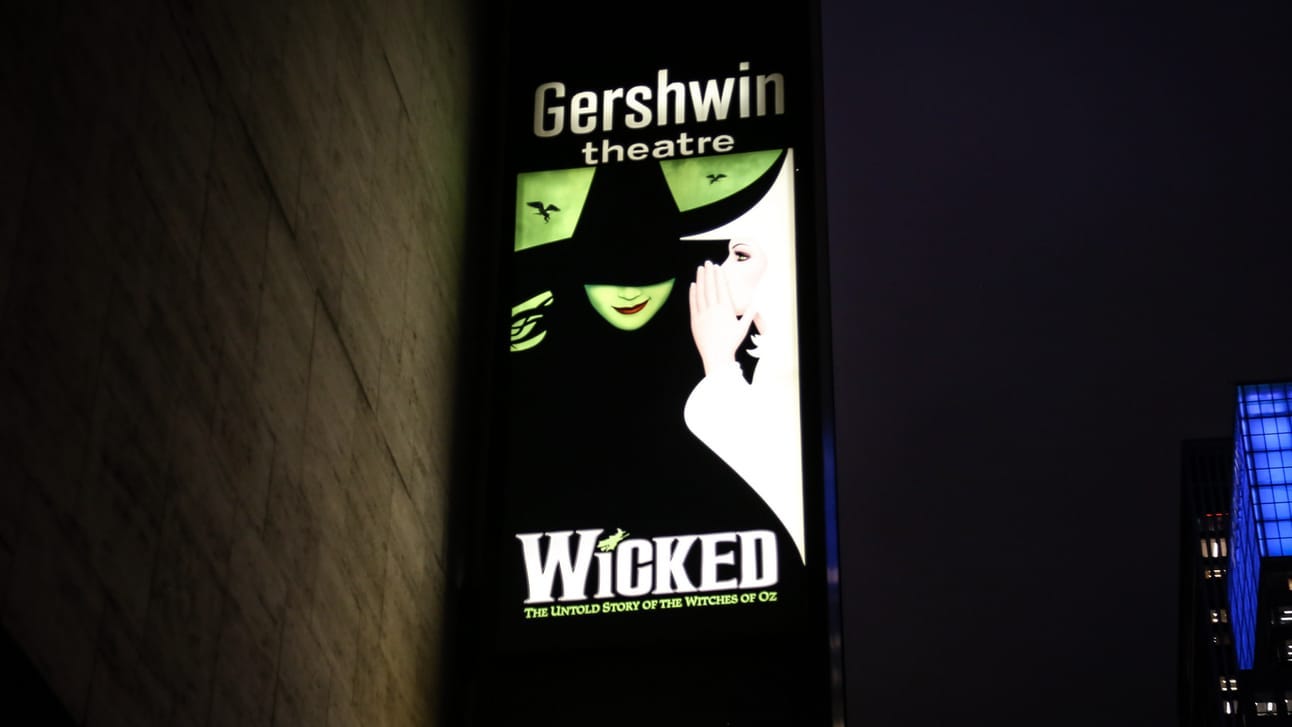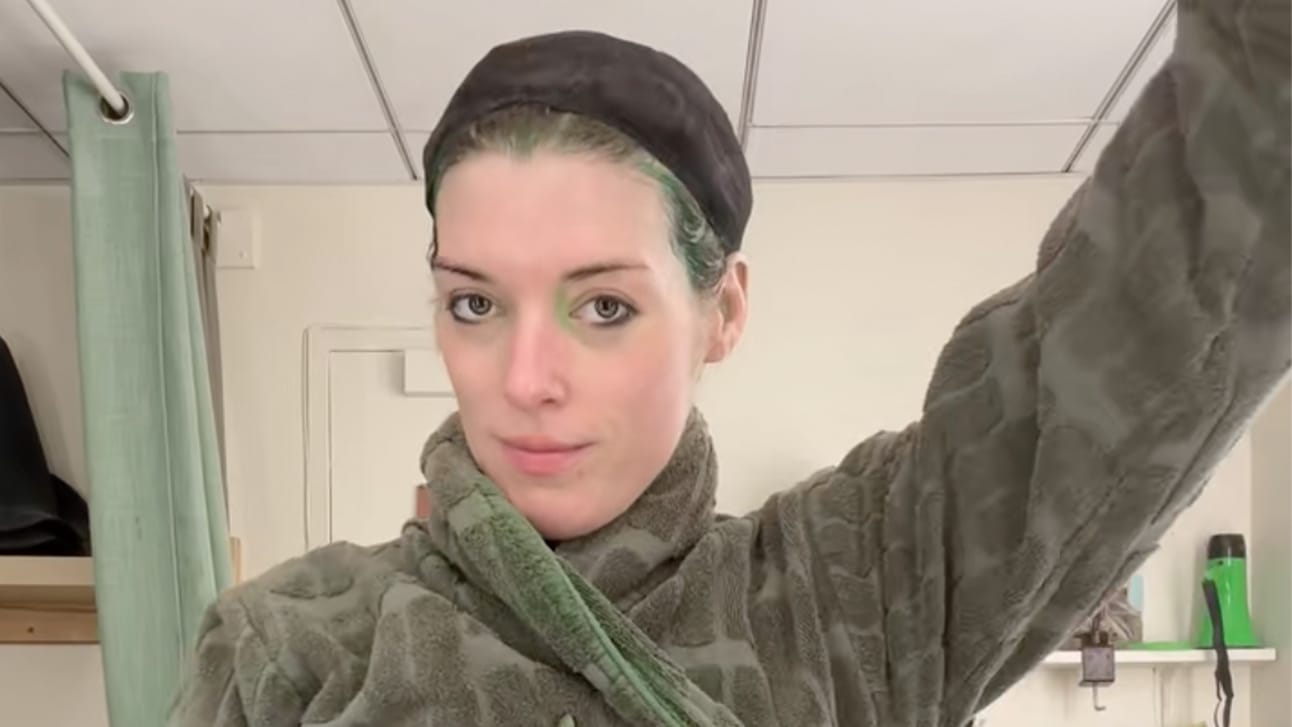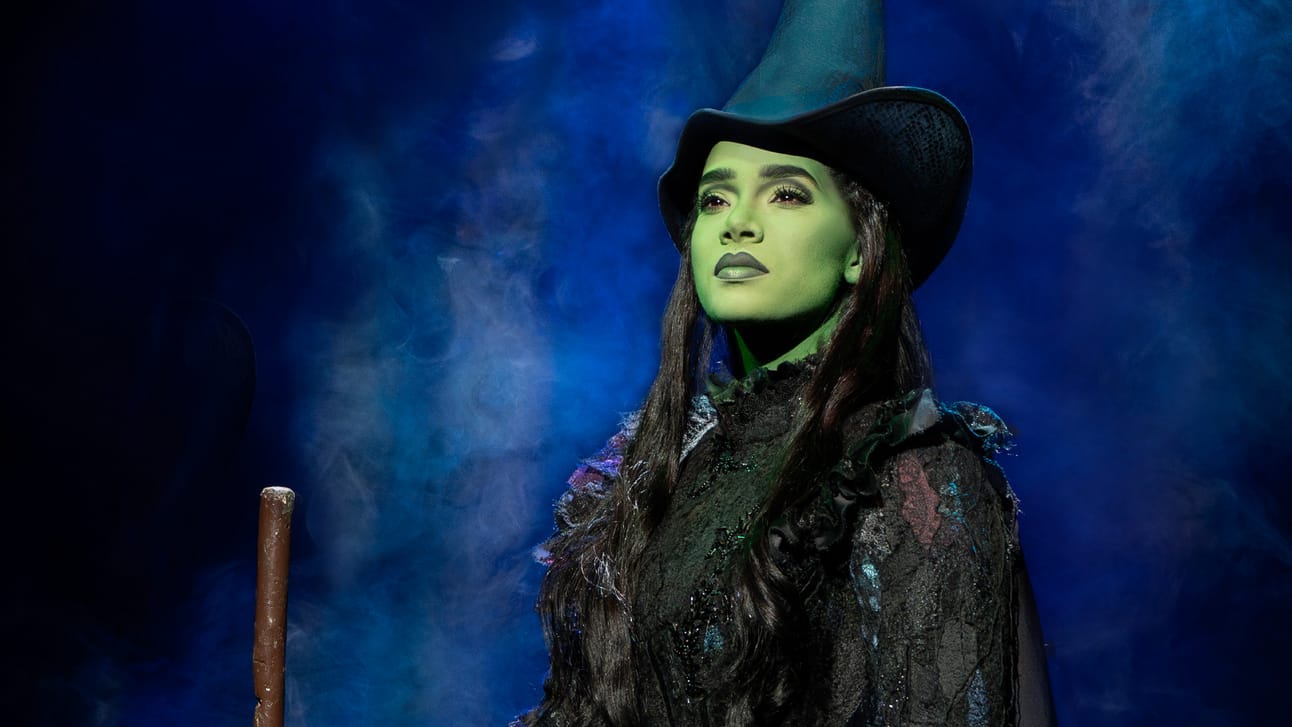The WICKED Problem 💅🏼
What happens when a show transcends 'hit musical'
Good morning 👋🏼 In a time of political chaos, division, and the creeping rise of authoritarianism, it feels oddly appropriate that WICKED is back in the cultural conversation. A musical about the dangers of propaganda, the rewriting of history, and the corruption of power? It’s almost too on the nose.
Between the WICKED movie’s viral press tour and the thrillifying effect the film has had on Broadway’s box office, this musical isn’t just thriving—it’s having a full-blown second cultural coming.
For two decades, WICKED has been a Broadway blockbuster. But now it’s become a global entertainment brand, with heavy influence on pop culture at large. So how does a show adjust and adapt when the spotlight is hot? That’s the question that’s had my gears going.
This week, I’m breaking down:
What we can learn from the movie’s viral marketing machine
Why the film sent Broadway’s box office soaring
How green makeup transformed what it means to be an actor online
How WICKED’s latest casting is building on the movie’s momentum
Let’s do this.
☝🏼 Hold My Finger
WICKED was always going to be a blockbuster, but its marketing didn’t just sell a movie—it sold a narrative. And at the center of that narrative? Ariana Grande and Cynthia Erivo.
Their dynamic—Ari as the lifelong WICKED fangirl, Cynthia as the theatrical force of nature—turned every press op into part of a larger storyline. Their Oscar nominations only heightened the stakes, making the whole thing feel less like a press tour and more like a reality show.
And that’s the thing. WICKED’s marketing worked because it wasn’t just about selling a movie—it was about building a relationship with its audience. The more they shared, the more we wanted the movie to succeed. Turns out, the best way to get people to root for a show is to make them feel a part of it.
💫 Wiz-O-Mania
WICKED has never really struggled at the box office, but something shifted when the movie hit. Suddenly, demand was up, ticket prices spiked, and the Gershwin was packed like it was 2003 all over again.
So, what happened?
Well this isn’t the first time we’ve seen a Broadway show get a bump from a film adaptation (see: Les Mis, Chicago, The Phantom of the Opera, and in a different way, Hamilton on Disney+). But WICKED wasn’t just a casual watch—it was an event. The kind of thing that makes people want to experience it live.
But the real magic is that the movie reactivated something in us. The part that spent middle school belting Defying Gravity, and scouring Tumblr for bootlegs. The part that still instinctively knows the harmonies in For Good. The part that remembers exactly who your first Elphie and Glinda were.
And the movie didn’t just unlock personal nostalgia—it created a bridge. Millennials who grew up with WICKED are now bringing their kids to the Gershwin, introducing a whole new generation to the green girly. And it’s paying off: during the Thanksgiving weekend after the film's release, WICKED on Broadway grossed a record-breaking $2.93 million, nearly $400,000 more than the previous week.
The best way to make a show feel fresh again is to remind people what it meant to them in the first place—and give them a reason to pass it on. WICKED didn’t change—but how we see it did. And that made all the difference.
💚 Degreenifying Life
Being in WICKED has always been a big deal. But being in WICKED right now is something else entirely.
Thanks to TikTok and the post-movie resurgence, playing Elphaba is no longer just about singing Defying Gravity eight times a week—it’s about documenting it.
No one has embraced this more than Mary Kate Morrissey, who wrapped up her run as Elphaba last weekend. She basically turned her day-to-day process into appointment content. From de-greenifying rituals to days-in-the-life, she’s pulled back the curtain on a role that was once mystical and made it feel personal.
The truth is, fans don’t just want to watch a show—they want to see inside it. And in a moment where Broadway is competing with everything for attention, actors who invite audiences into their world will always have the edge.
Being a performer today isn’t just about what happens onstage—it’s how you let people in. Whether you’re starring in WICKED or working on something entirely your own, audiences are more likely to invest in you if they feel like they’re part of the journey. And in an industry that thrives on connection, that might just be the most valuable thing an artist can create.
✨ Real Theater Magic
For a show about questioning who gets to hold power, it’s kind of insane that it took over 20 years for WICKED to cast a full-time Black Elphaba on Broadway. But this week, history was finally made.
Lencia Kebede took flight as the first Black woman to lead the Broadway company full-time, and Jenna Bainbridge became the first disabled actor to play Nessarose, bringing authentic disability representation to a role that’s always been defined by it. Credit where it’s due—the team at Telsey (who’ve cast WICKED for years) helped make that change, and people are paying attention.
Not just in the theater—but online. Bootlegs of Lencia’s first performance are already all over TikTok, and instead of turning people away from the show, they’re pulling people in. The same way the WICKED movie reminded people why they loved this story, these viral clips are getting people excited, sharing, and buying.
WICKED has always been a show about perception—who gets to be seen, who gets to be heard, and how stories get told. This moment is no different. Representation isn’t just about who takes center stage—it’s about who gets to take up space in the culture. And right now, WICKED isn’t just running—it’s evolving.
👀 Worth the Watch
This video that Olney Theatre Center in Maryland shared of the show’s leads doing a gorgeous arrangement of the 11 o’clock number “She Used to Be Mine” featuring Marcia Milgrom and (my sweet friend) David Socolar.
I’m a big fan of regional theaters sharing more than just b-roll clips by taking advantage of the insane talent they have on hand, and this video is a great example of how to do that. Plus, it’s not just a song from the show—it’s a new arrangement of it.
♥️ One last thing…
This week I've been learning (and re-learning) the delicate art of listening to what my body is actually telling me, rather than what my ambition wants it to say.
Balancing rehearsals for "All The World's A Stage" with my freelance work, creating content, and this newsletter has been...well, let's call it a master class in humility. I had this beautiful vision of seamlessly flowing between rehearsal room and laptop, fueled by passion and coffee. The reality? My body had other plans.
There's this weird guilt that comes with readjusting expectations—like somehow you've failed because your original superhuman schedule wasn't sustainable. But here's what I keep reminding myself: adjusting isn't the same as giving up.
Sometimes "doing it all" actually means "doing what matters most right now." Sometimes it means getting 8 hours of sleep instead of staying up to grind. Sometimes it means saying "I can't today, but I can tomorrow" and actually honoring that promise to yourself.
The most beautiful performances I've ever seen aren't displays of perfection—they're moments of exquisite presence. Of someone fully inhabiting exactly where they are. Maybe that's the goal off-stage too?
So if you're in that messy middle space right now—where your calendar and your energy levels are having heated arguments daily—consider this your permission slip to readjust. To listen to that quiet voice beneath the shoulds and have-tos.
You're not failing at the balancing act. You're just changing the choreography.
See you next week ♥








